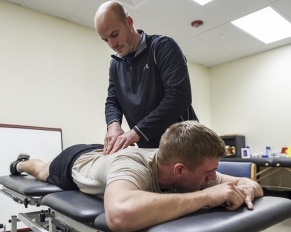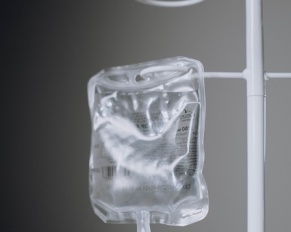In the tapestry of aging, joint health stands out as a crucial thread that holds together the quality of life…


In the tapestry of aging, joint health stands out as a crucial thread that holds together the quality of life…

As the golden years approach, the desire to age gracefully while maintaining a youthful glow becomes a significant aspect of…

Most people associate removing wrinkles with a Botox treatment, but recently it has been used in cases where individuals have experienced migraines. The question remains as to whether or not there is adequate evidence that would show a Botox treatment would provide any measure of relief for migraine sufferers. In July of 2010, the MHRA (Medicines and Healthcare products Regulatory Agency) licensed Botox for treating chronic migraines. The FDA (Federal Drug Administration) approved the use of Botox for treatment of chronic migraine headaches.

During this challenging time and with social distancing becoming the norm, telemedicine/telehealth is the perfect way to continue progressing toward…

Sports injuries have the power to take athletes away from their sport for games, seasons and sometimes entire careers. Commonplace…

Cost Efficiency for Patients
One of the biggest selling points for patients to use an ambulatory surgery center is the cost. Unlike a regular hospital which may rack up health cost bills in the hundreds of thousands for one individual, ambulatory surgery centers can afford to not charge so much because of the cost it takes to upkeep a center versus a hospital. In fact, if you look at the numbers the cost for ambulatory surgery centers versus hospitals is quite different. Numbers range from 25% to 33% lower for surgeries and treatments in an ambulatory surgery center setting rather than a hospital setting. That could mean a lot for individuals that choose not to get an important surgery or treatment because money is an issue. 25-33% less might not seem like a huge deal, but if you start to look at surgery and treatment costs; you begin to see that small percentage really does make a large impact on your financials.
Consumer Benefits
Most hospitals where I’m from are in the city. They tend to be a pain to get to; you have to deal with a lot of traffic and crowds. Ambulatory surgery centers are usually quite the opposite. They tend to be in more suburban areas which mean they are easier and quicker to get to which means they have better access to patients than a traditional hospital setting. Also, because ambulatory surgery centers don’t deal with emergency surgeries, it’s almost out of the question that your scheduled procedure will be “bumped” for an emergency surgery or situation. This means you can get your procedure or treatment done on the day it was scheduled which means you can get back to life and your job and not have to keep rescheduling when they can do your procedure!

The FDA, or Food and Drug Administration, is an agency inside the U.S. Department of Health and Human Services. It makes up the office of the Commissioner and the four directorates oversee the core functions of the agency. From medical products and tobacco, to food and veterinary medicine, it helps to regulate operations for many industries in America.
The Federal Drug Administration is responsible for many things. First is being the regulator of tobacco. Beyond that, the FDA aids the protection of public health by making compliance regulations for the medical field, food service industry, and many more important parts of everyday life for American citizens.
 Most people throughout the country have experienced the pain of a toothache at one time or other in their lives. However, just because a toothache is a fairly common occurrence, does not mean that it isn’t all that big a deal, especially if you’re the person who’s experiencing it. What causes a toothache is one of the most commonly asked dental health questions patients pose to their dentists, and some of the answers may surprise you. Of course, everybody knows that a toothache can be caused by all manner of dental health issues, from cavities and other types and degrees of tooth decay, to chips and cracks in the teeth, to exposed nerve roots. But did you know that the cause of a toothache could be an ear infection or that chronic sinus problem you’ve been enduring? Following are answers to questions about some of the most common causes of toothaches, as well as tips on preventing them.
Most people throughout the country have experienced the pain of a toothache at one time or other in their lives. However, just because a toothache is a fairly common occurrence, does not mean that it isn’t all that big a deal, especially if you’re the person who’s experiencing it. What causes a toothache is one of the most commonly asked dental health questions patients pose to their dentists, and some of the answers may surprise you. Of course, everybody knows that a toothache can be caused by all manner of dental health issues, from cavities and other types and degrees of tooth decay, to chips and cracks in the teeth, to exposed nerve roots. But did you know that the cause of a toothache could be an ear infection or that chronic sinus problem you’ve been enduring? Following are answers to questions about some of the most common causes of toothaches, as well as tips on preventing them.
A spinal specialist may recommend that a patient undergo a corpectomy in some instances. A corpectomy is a surgical procedure on the spine. Corpectomy in its simplest sense means “remove the body.” In this case there is a removal of vertebrae. A spinal surgeon will remove bones or discs to relieve the pressure on a patient’s nerves and spinal cord. During the procedure, the surgeon will remove portions of the bony sections which comprise the spinal column as well as discs that may be adjacent to the section being removed. Once the NJ spinal surgeon removes the discs and bones, there will be an empty space which will need to be reconstructed. The bones will be replaced through a bone graft or bone substitutes. In some cases there is missing tissue that is causing bone to rub against bone. The tissue must be reconstructed in order to prevent further damage. There are two basic reasons that a spine specialist might suggest a corpectomy for a patient: to remove pressure that is being put on the spinal cord or to stop any abnormal movement or motion between the vertebrae.